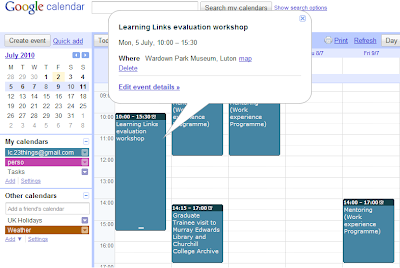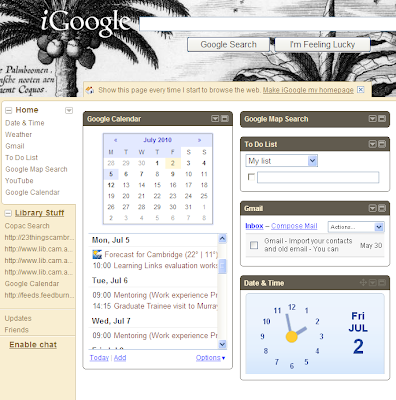Yet another Google application. Not a bad one admittedly ; I fail to find any major drawback to the thing.
The best feature of Google Calendar, in my opinion, is the possibility to create several calendars (for work meetings, personal invitations, cultural events, etc…) to which you can attribute different colours, and which can all be viewed simultaneously on one page. Calendars can either be private or public, with the possibility to add some events private within a public calendar. Events can be automatically reproduced daily, every week, etc, which is quite practical.

The system of notification of events by email or pop up window is also certainly useful, especially for scatterheads like me, but of course you might not want your email address to be flooded with reminders. I preferred to change the default settings and turn it off.
Another interesting feature of Google Calendar is that it can be used to advertise and invite people to events, but to that purpose doodle has the definite advantage, to my mind.
Then there are some more anecdotic features: you can add the weather forecast, and the calendar is linked to Google maps, so that you get a little map when you enter a location for your events (although admittedly it didn’t manage to find “The Coffee Table” I entered for my 23 thing meeting!). Adding the calendar to igoogle was a piece of cake (figuratively speaking, unfortunately).

Now after saying all those good things about Google calendar, it remains that I still prefer the plain, old-fashioned paper calendar that I carry in my bag all the time and which has the major advantage of being doodlable (I mean old fashioned doodles with a pen). I suspect too I am not the only one. As Libgeek suggested, this would seriously compromise its viability as a staff calendar.
Now the other obvious use for libraries is, as suggested on the 23 Things blog, to use it to advertise events or show opening hours and planned closures. This is an excellent tool for big academic libraries and for public libraries where there are always many events taking place very regularly, but probably not as relevant to college libraries.


